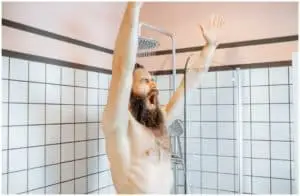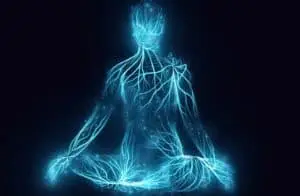Ibogaine treatment is one of the most popular options, outside the USA, for those struggling with severe opiate and heroin addiction.
However, because of legality issues, Ibogaine is not only hard for addicts to find but also it is almost impossible for scientists inside the US to study Ibogaine and its effects on severe addiction.
Yet, as issues with drug abuse and overdose continue to rise, the need for effective treatments that work has never been greater.
More addicts are being created every day. Ibogaine may just one of many alternative and holistic treatment options available, but the positive response from many addicts who have taken Ibogaine makes studying this drug an even bigger necessity.
How was Ibogaine discovered?
Ibogaine is a psychoactive compound with strong psychedelic properties. Extracted from the Tabernanthe iboga root bark found in Africa, Ibogaine has been used for centuries by the African Bwiti religion as a spiritual conduit.
However, it wasn’t until the 1960’s, a former heroin addict discovered Ibogaine could eliminate withdrawal symptoms and treat severe addiction. His name was Howard Lotsof. And, after taking Ibogaine himself, Lotsof spent his life successfully studying Ibogaine as a treatment for addiction.
After discovering Ibogaine, Lotsof began experimenting on other friends and he obtained the same results. This led him to study Ibogaine and addiction for the rest of his life.
He was able to analyze Ibogaine, not only for heroin and opiate addiction, but also found out that the drug has the potential to treat other addictions like the ones to alcohol, amphetamines, cocaine, and even nicotine.
Lotsof was the pioneer into Ibogaine as a treatment for addiction. His studies paved the way for others who verified these claims.
Recent study proves the efficiency of Ibogaine
However, more recently, studies on Ibogaine have come out of Brazil, one of the few countries that allow scientific testing of Ibogaine to be done.
In one such study, patients were sent to a private hospital and where they were administered Ibogaine. This included a full medical procedure with emotional support from a trained physician.
The study analyzed just how well Ibogaine works for addictions and other than opiate dependency. The results were very promising with 61% of the addicts managing to overcome their addiction for a minimum of eight months.
Side effects were mostly from the unpleasant and intense psychedelic experience—fatigue, trouble sleeping. It is also worth noting that many of the patients had, without success, tried multiple traditional rehabilitation avenues before finding Ibogaine.
Upcoming research on Ibogaine treatment
While many clinics, like Experience Ibogaine treatment centers, have done their own small studies, massive modern and government-funded studies on Ibogaine treatment are few and far between.
However, the few resulting tests on Ibogaine treatment have been very inspiring, leading more scientists to call for future studies on the drug. New research hopes to analyze how exactly Ibogaine affects the quality of life and the emotional state addicts on a long-term scale. There are currently two studies in the works in New Zealand and Mexico.
One major study aims to find out just long can a patient remains abstinent after Ibogaine treatment, while also focusing on other results such as social relationships, effects on depression, and any other emotional changes that come from Ibogaine.
So far it appears that 12-month abstinence rates following Ibogaine treatment can range anywhere from 20-50%, but the studies are still too few to be conclusive.
However, if we take a look at the data we have so far, the results are promising. Few treatment options that have shown this type of long-term effectiveness, with even fewer showing these effective rates for strong addictions such as heroin and opiates. New studies hope to uncover more data on Ibogaine treatment for cocaine, marijuana, crack cocaine, alcohol addiction, and other non-opiate addictions.
With such optimistic results, many scientists hope to see Ibogaine treatment become a viable option with applications inside the US scientific community.
How much does it cost?
Most of the time, the costs for Ibogaine treatment are quite high. Usually, the price runs between 5000 and 7000 dollars, which includes all housing and medical costs.
You might find offers that are cheaper than this, but you should always remember that these often come with medical shortcuts that can greatly increase the risks of Ibogaine treatment. The best options are clinics that have prepared medical staff and proper medical equipment. If they do not have all these options, you may be putting your health in danger.
You will also need to find specialists who are trained specifically for the Ibogaine treatment. Ibogaine clinics for treating addiction should specialize in using Ibogaine.
How does Ibogaine work?
Most addicts will take Ibogaine Hydrochloride, a 99 percent pure version of Ibogaine. It is obtained directly from the Iboga root bark and has strong psychedelic effects that a majority of users will experience.
Usually, the effects of Ibogaine can last anywhere from 8-12 hours, with a 24-hour resting period following. During this experience, addicts often come face to face with their past decisions and trauma they have experienced.
But Ibogaine also works on the physical brain to help repair the damage done by addiction. This means that, for the addict, the majority, if not all, of withdrawal symptoms are eliminated and the addict is physically able to move forward without physically needing the drug to feel normal.
The future for Ibogaine
Although Ibogaine treatment has shown promise, addicts still must travel outside the USA in order to find medical Ibogaine treatment.
However, with so much potential, studies for Ibogaine in the USA will hopefully be approved in the near future. This would help more individuals find Ibogaine treatment and be able to overcome their addictions to strong drugs in a more natural way.
- About the Author
- Latest Posts
As a founder and chief author at InsightState.com, Bulgarea Candin helps readers on their spiritual journeys. His writings are designed to inspire creativity and personal growth, guiding readers on their journey to a more fulfilled and enlightened life.



